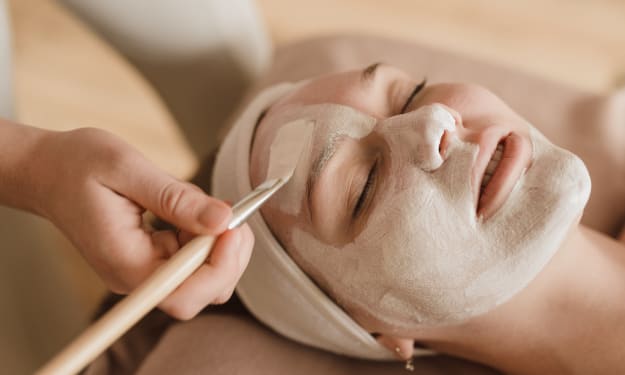How wearing makeup effects your skin
The positives and negatives

Wearing makeup is a common practice for many people, whether it's to enhance features, cover imperfections, or simply to express oneself creatively. However, the impact of makeup on the skin is a topic that garners significant attention. While makeup can temporarily enhance appearance, improper use or prolonged wear can have various effects on the skin, both positive and negative.
One of the primary concerns with wearing makeup is its potential to clog pores and contribute to acne breakouts. Many makeup products contain oils, silicones, and other ingredients that can block pores, leading to the formation of blackheads, whiteheads, and pimples. This is particularly true for heavy, oil-based foundations and concealers. Additionally, wearing makeup for long periods without proper removal can trap dirt, bacteria, and environmental pollutants on the skin, further exacerbating acne.
On the flip side, makeup can also provide a protective barrier against environmental pollutants and UV radiation. Certain cosmetics, such as foundations and tinted moisturizers, contain ingredients like titanium dioxide and zinc oxide, which offer some degree of sun protection. Additionally, makeup can act as a shield against airborne particles and free radicals, reducing the risk of skin damage and premature aging.
However, makeup can also disrupt the skin's natural balance and moisture levels. Many cosmetics contain alcohol and other drying agents that can strip the skin of its natural oils, leading to dryness, irritation, and sensitivity. This is especially problematic for individuals with dry or sensitive skin types, as well as those prone to conditions like eczema and rosacea. To mitigate this, it's essential to choose makeup products formulated for your specific skin type and to incorporate hydrating skincare products into your routine.
Furthermore, frequent makeup application and removal can cause mechanical stress on the skin, leading to inflammation and micro-tears. Rubbing and tugging at the skin, especially around the delicate eye area, can contribute to the development of fine lines, wrinkles, and sagging over time. To minimize this risk, opt for gentle makeup removal methods, such as micellar water or oil-based cleansers, and avoid harsh scrubbing or pulling on the skin.
Another concern associated with makeup is its potential to exacerbate underlying skin conditions. Certain ingredients commonly found in cosmetics, such as fragrances, dyes, and preservatives, can trigger allergic reactions and sensitivities in some individuals. This can manifest as redness, itching, swelling, and irritation, particularly in those with sensitive skin or pre-existing allergies. To avoid this, it's crucial to patch-test new products before applying them to the entire face and to choose hypoallergenic and non-comedogenic formulas whenever possible.
Despite these potential drawbacks, wearing makeup can also have positive effects on the skin, particularly when combined with proper skincare practices. Many cosmetic products now contain skincare ingredients like vitamins, antioxidants, and hyaluronic acid, which can provide additional benefits such as hydration, brightening, and anti-aging effects. For example, foundations infused with vitamin C can help even out skin tone and promote collagen production, while moisturizing lipsticks can prevent chapping and dryness.
Moreover, makeup can boost confidence and self-esteem, leading to psychological benefits that extend beyond physical appearance. The act of applying makeup can be therapeutic for some individuals, providing a sense of control, creativity, and self-expression. Research has shown that wearing makeup can positively impact mood, perception, and social interactions, leading to increased feelings of attractiveness and empowerment.
In conclusion, the effects of wearing makeup on the skin are multifaceted and can vary depending on factors such as product formulation, skin type, and individual sensitivities. While makeup can enhance appearance and boost confidence, it also has the potential to cause acne, dryness, irritation, and other skin concerns if not used properly. By selecting suitable products, practicing good skincare habits, and being mindful of makeup application and removal techniques, individuals can enjoy the benefits of cosmetics while minimising the risk of adverse effects on their skin.
If you find this piece interesting, please consider leaving a ♥️, subscribing for free or even leaving a tip. Your support means a lot to me as a writer!
About the Creator
Charlotte Fay
Rambling outdoors & writing about it. Love a good adventure. Passionate about holistic wellness & the natural environment. Studying a Wildlife Ecology & Conservation Degree. I also love to write about a variety of subjects that interest me.






Comments
Charlotte Fay is not accepting comments at the moment
Want to show your support? Send them a one-off tip.